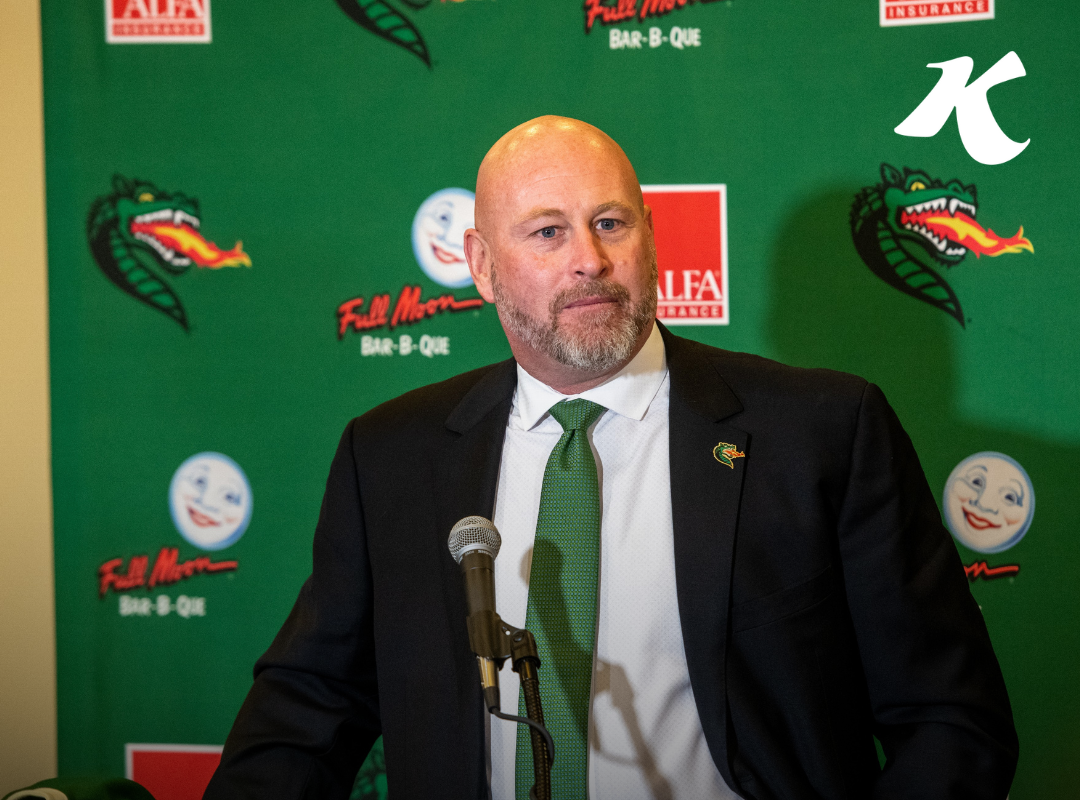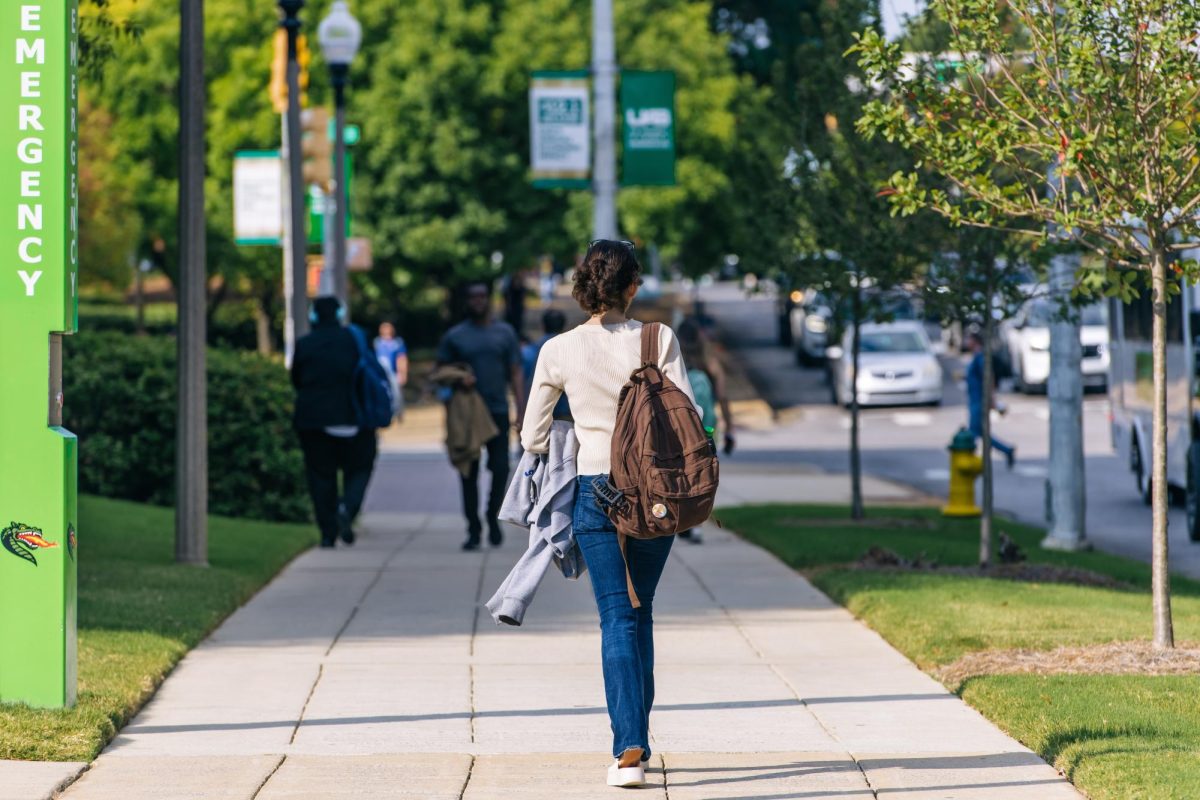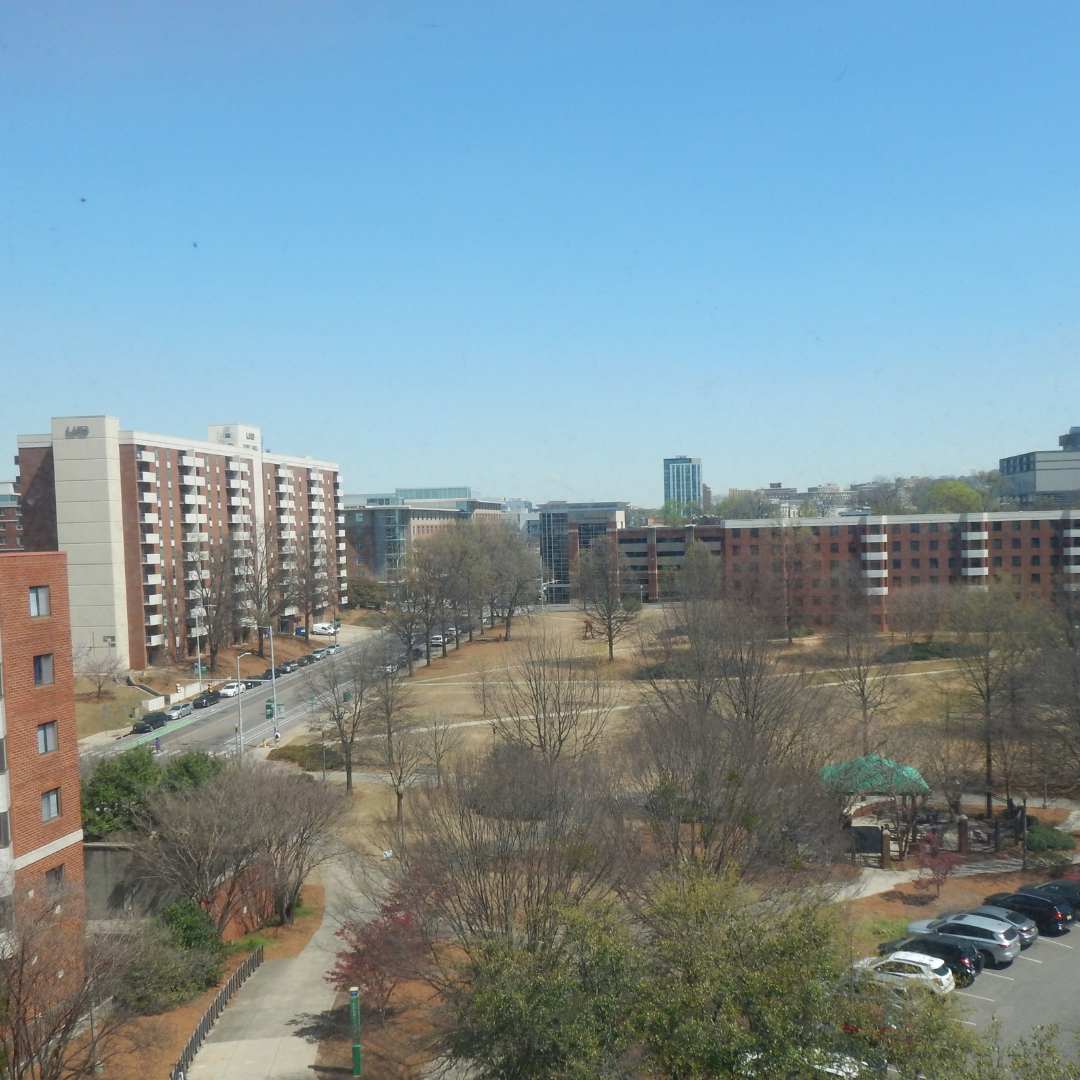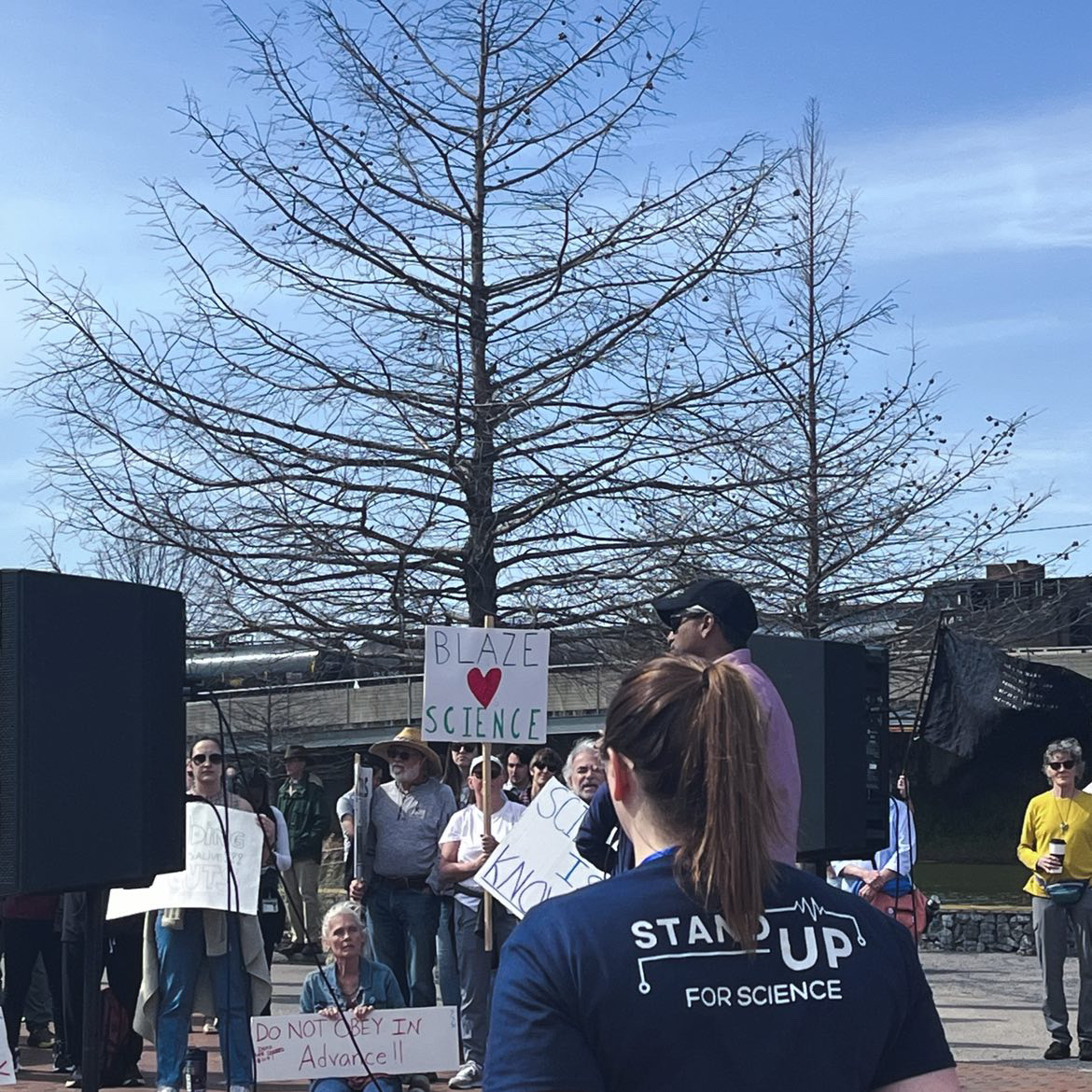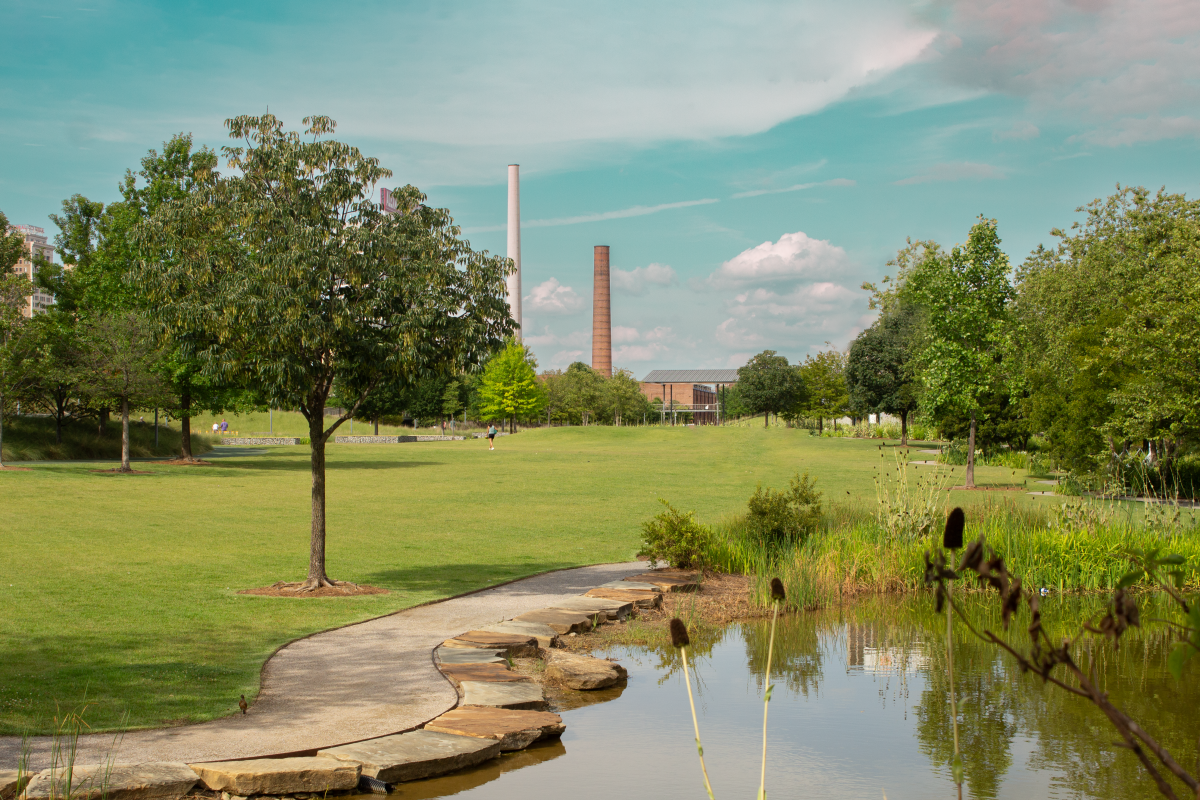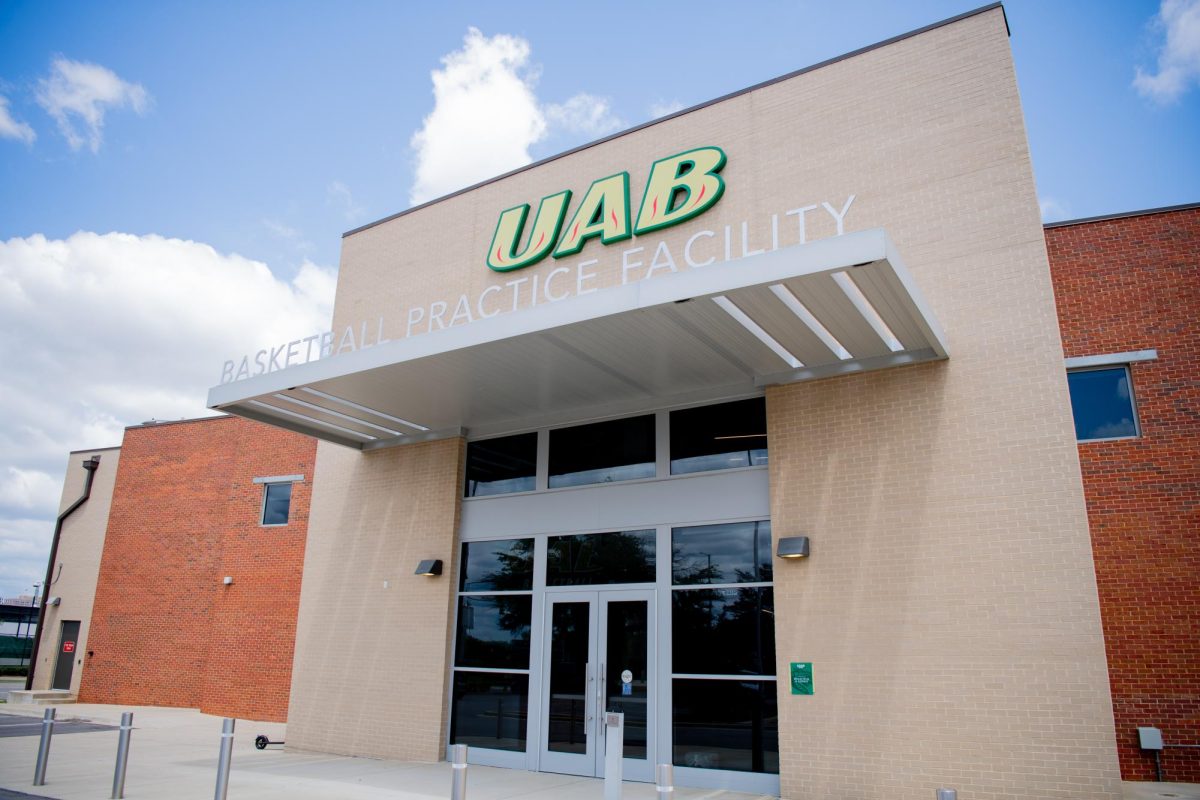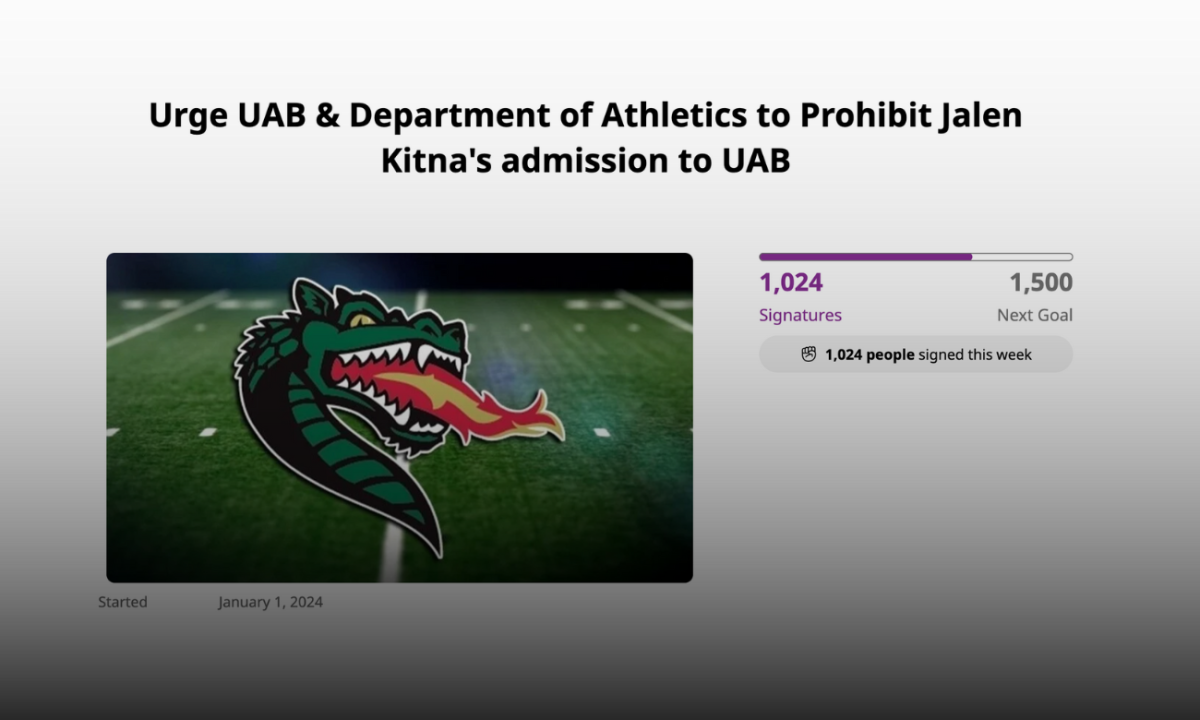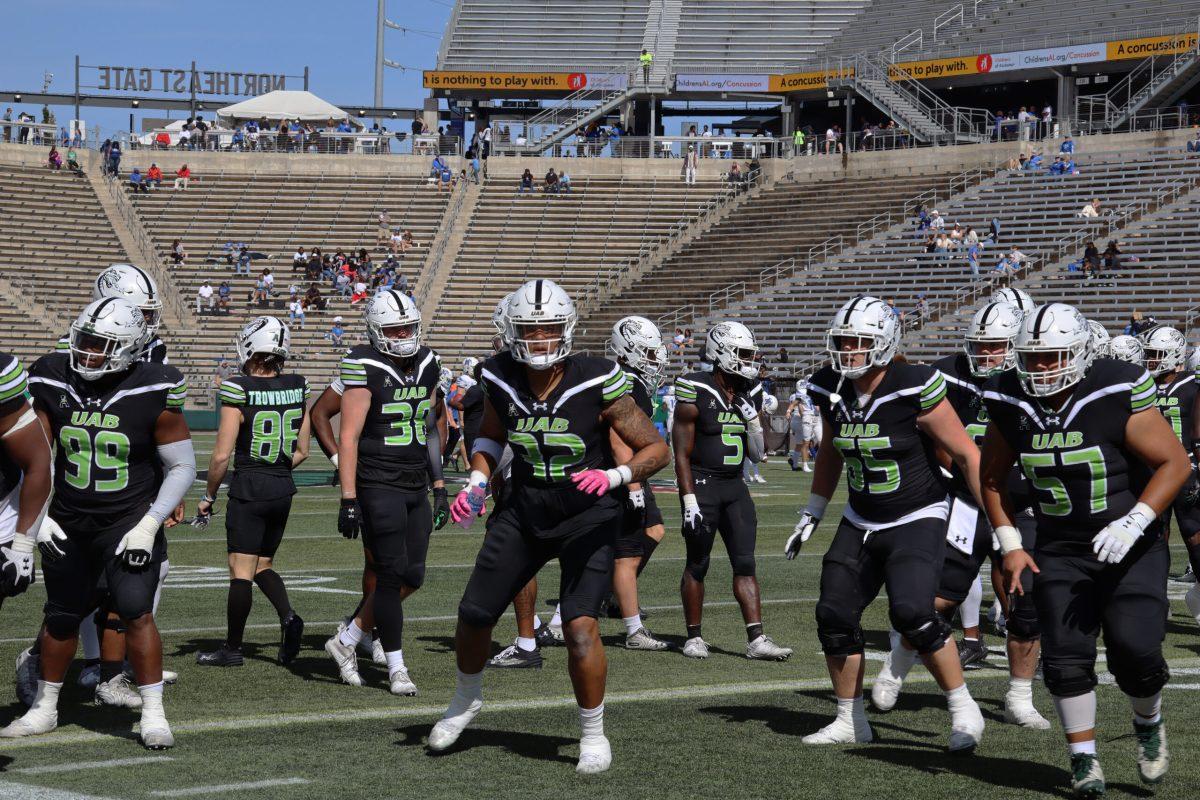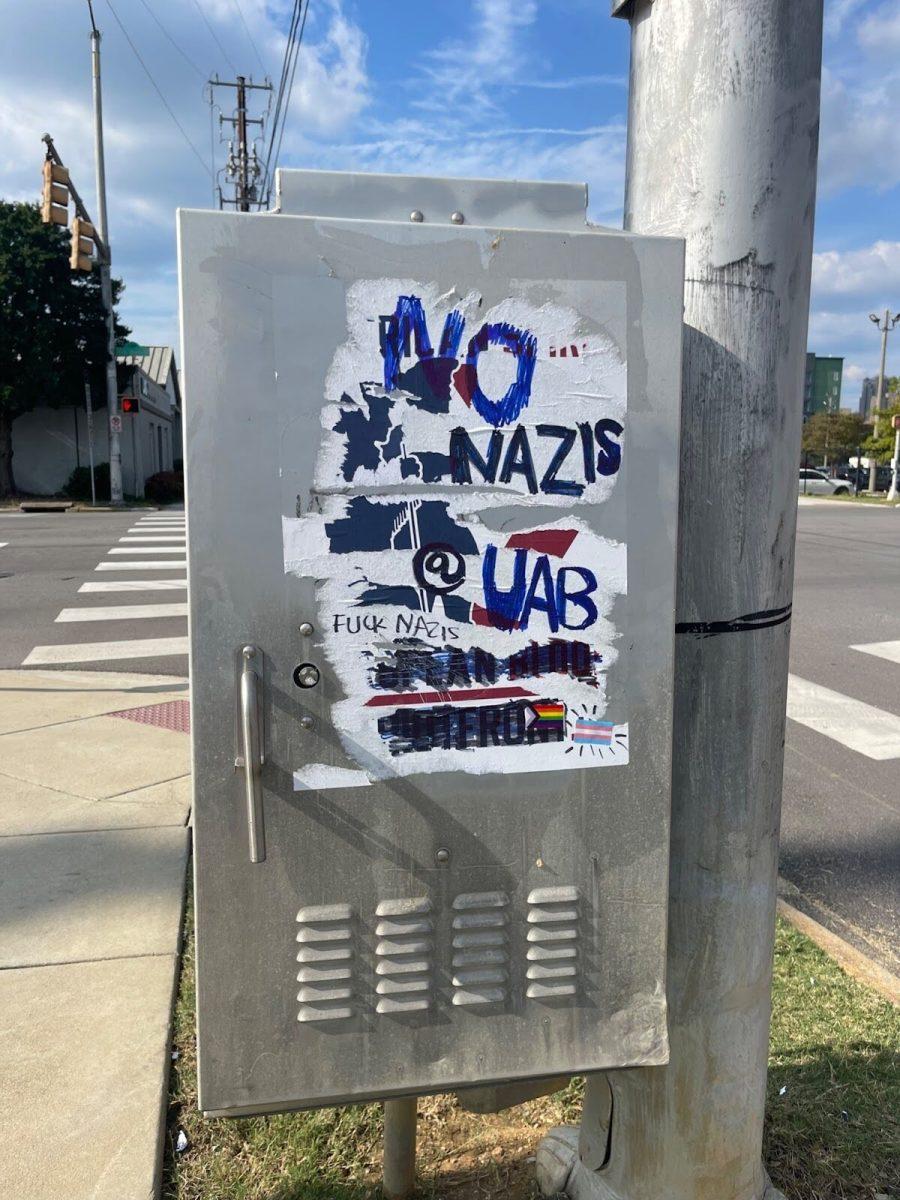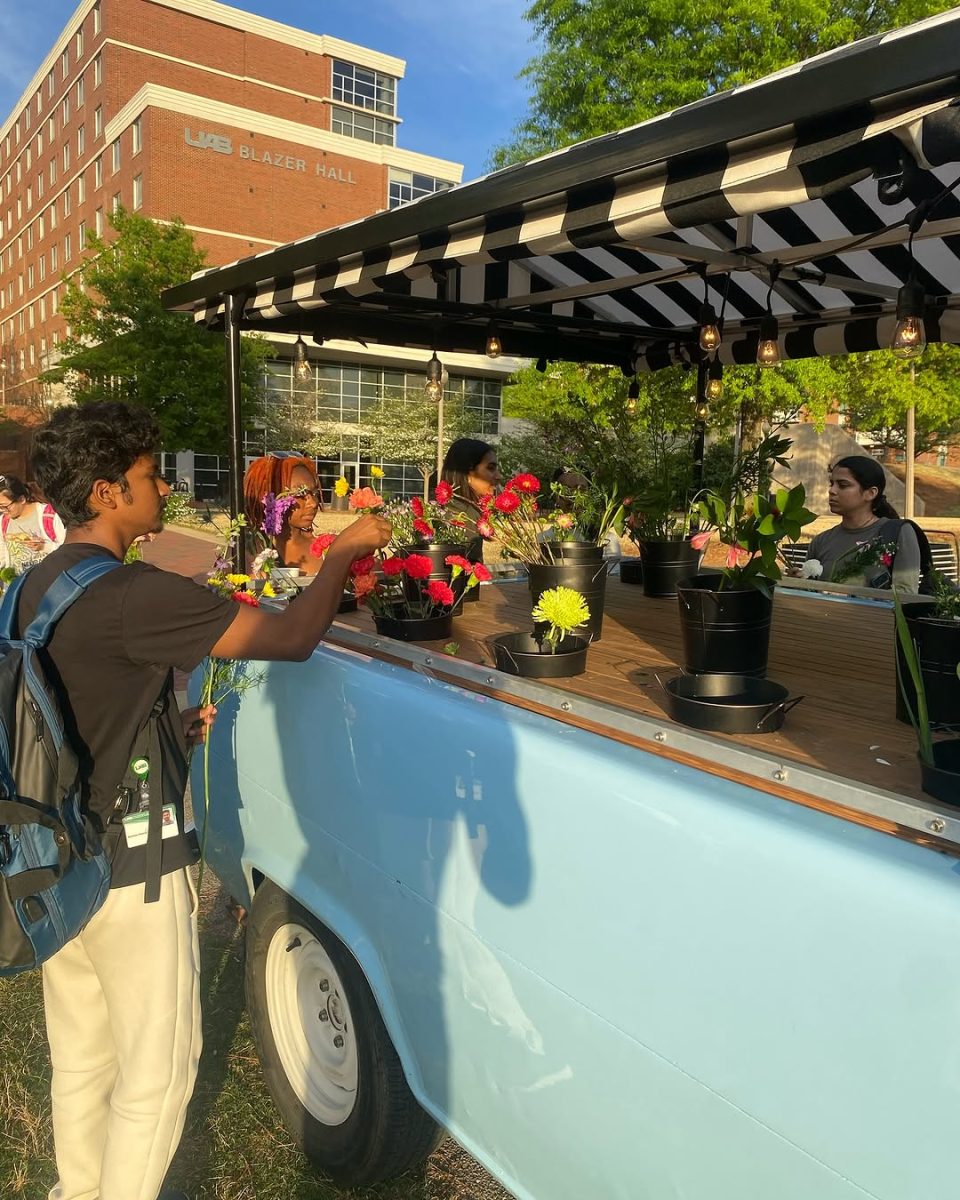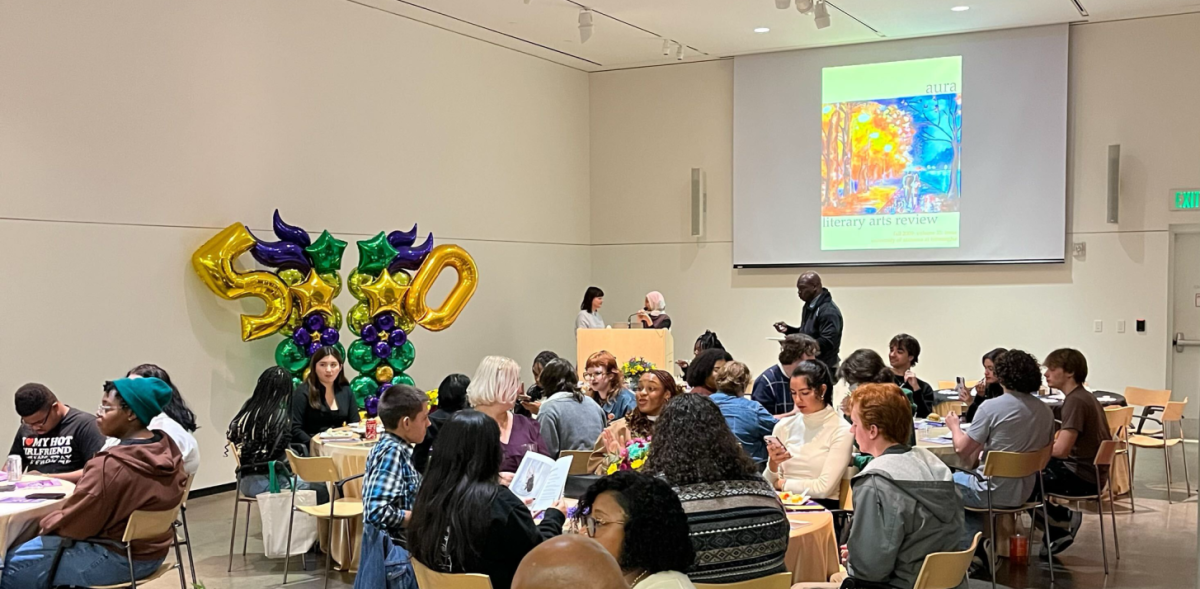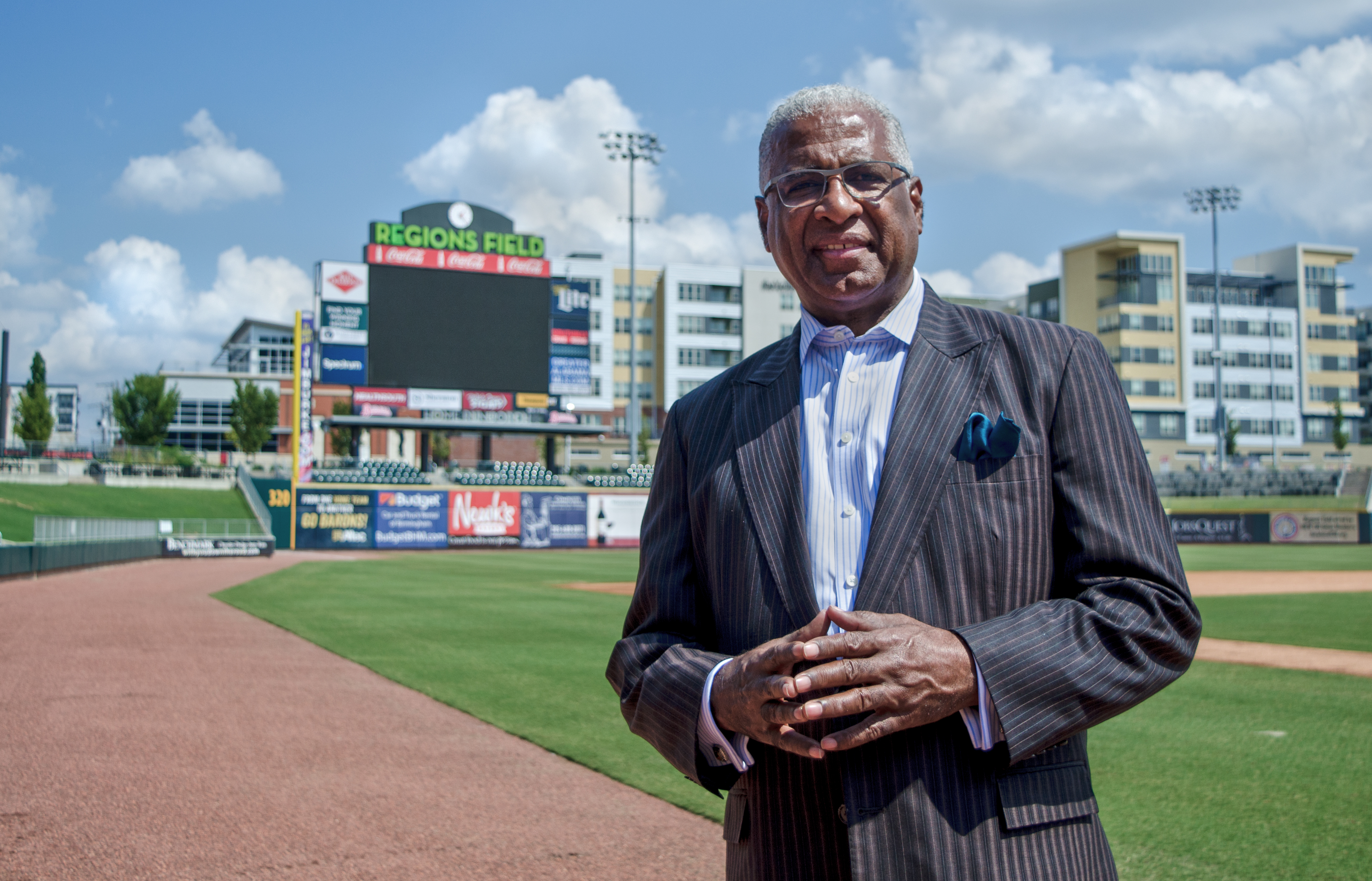
Mayor William A. Bell stands near the home dugout of Region’s Field, which was completed in 2013 under his advisement.
Photo by Ian Keel / Photo Editor.
Wallace Golding, Managing Editor
If you look south from Section 107 of Birmingham’s Regions Field, you will see a sprawling skyline of apartments, hospitals and office buildings, one that wasn’t present less than a decade ago. Mayor William A. Bell built this, or rather, he envisioned this. This field and these buildings tell a story for Bell, a story of his leadership, his foresight and his perceptiveness.
Getting here has not all been pretty for Bell and his administration. His is a government whose accomplishments have largely been overshadowed by back-room brawls, tension with the City Council and accusations of neglecting Birmingham’s most impoverished neighborhoods. Still, however, he believes he has something for Birmingham, something that can keep this city on track.
This stadium became a crown jewel for the city when it opened in 2013, a testament to the true leadership of whoever may have materialized it. Having an idea is one thing; making it happen is another.
“It’s gorgeous, Mayor,” interjected Kwani Carson, a member of Bell’s campaign staff. “You did a great job.”
Less than one month prior, on Aug. 22, his bid for reelection was sent to a runoff, with his opponent, Randall Woodfin, pulling in 40.84 percent of the vote compared to his own 35.55 percent. The outlook appeared bleak at this point, but Bell remained optimistic. He has been here before, after all. His December 2009 election was marked by a deficit of more than 5,000 votes to Patrick Cooper. Bell won the ensuing runoff by more than 25,000 votes.
“The reaction was ‘my votes didn’t come out,’” Bell said. “Anytime that you have 11 or 12 candidates in a race, they’ll all pull votes from you. I’m not shocked by that, nor am I daunted by it.”
Bell’s opponent caught attention as being young and innovative, something many believe Birmingham’s government needs. Bell, however, disagrees.
“My opponent, for the most part, received a free ride,” Bell said. “There was no focal point on his public service record, which I believe people are now beginning to notice.”
An assistant city attorney and former president of the Birmingham Board of Education, Woodfin’s public service record is “very thin and very light,” according to Bell.
“What people have to understand is that Birmingham is a billion-dollar enterprise,” Bell said. “You have to have the experience to be able to move this city forward.”
Former Birmingham mayors Richard Arrington and Bernard Kincaid seem to agree, having officially given their endorsement to Bell during a Sept. 7 press conference.
“They know what it takes,” Bell said. “So, to get their endorsement and support really sends the message that they realize I have the experience, the knowledge and the skills to be able to continue to lead this city.”
Bell’s administration has long been criticized for the apparent tension with the Birmingham City Council. Perhaps the most prominent example of this was Bell’s 2015 altercation with Councilor Marcus Lundy, which sent both individuals to the hospital. Despite this, the current Mayor preached the need for civil discourse on both sides.
“I think that when you look at any governmental entity, there’s always tension between the administrative side and the legislative side,” Bell said. “That is natural. As it relates to the city of Birmingham, over 95% of the items we have on the council agenda every week are supported and passed by the majority of councilmembers, so we are making progress from that point.”
Others have questioned Bell’s ability to address crime within city limits. Just last year, Birmingham was listed as the third most violent city in the nation, according to a report by the FBI. Only St. Louis and Detroit ranked higher. Bell maintains that crime rates have decreased under his administration.
“The vast majority of [violent crime] situations occur among people who know each other,” Bell said. “It’s very difficult to police that type of activity, but we also recognize that you have to have a higher visibility of police on the street. We’ve brought in a lot of new technology to identify problem areas and provide solutions.”
Aside from crime, Birmingham’s education system has been of the utmost concern throughout the campaign, with 13 of the district’s schools labeled “failing” by the Alabama State Department of Education in January. Bell chalks this up to a “deficit of leadership” on the school board, one that he believes will improve under the direction of new superintendent, Dr. Lisa Herring.
Bell also spoke to how he has sought to improve the school system.
“I’ve worked constantly trying to find ways to improve the revenue and resources available to the school system,” Bell said. “In fact, we recently had a referendum on Jefferson County being able to keep and use a one cent sales tax to continue to help fund our schools.”
Bell revealed that he expects to receive $16 million for Birmingham City Schools this year followed by another $4 million each year for the next 25 years as part of a deal with Jefferson County Schools.
“I’m hoping we invest part of this money in reading programs and technology programs that directly benefit students,” Bell said.
Despite its struggles, Bell believes Birmingham can become something even greater than it currently is, touting the city’s inherent diversity and ideal location. In his eyes, it acts as a chain reaction.
“I want to see Birmingham become an international city,” Bell said. “Once we establish Birmingham as that international city, which is something I’ve been working on for several years, we’ll be able to change the image of the city, attracting international companies and creating new jobs. People will be able to invest in their homes, invest in their communities and strengthen all of our neighborhoods.”
Runoff elections will be held on Oct. 3.
Wallace Golding can be reached at [email protected] or on Twitter @WGolding_4.


